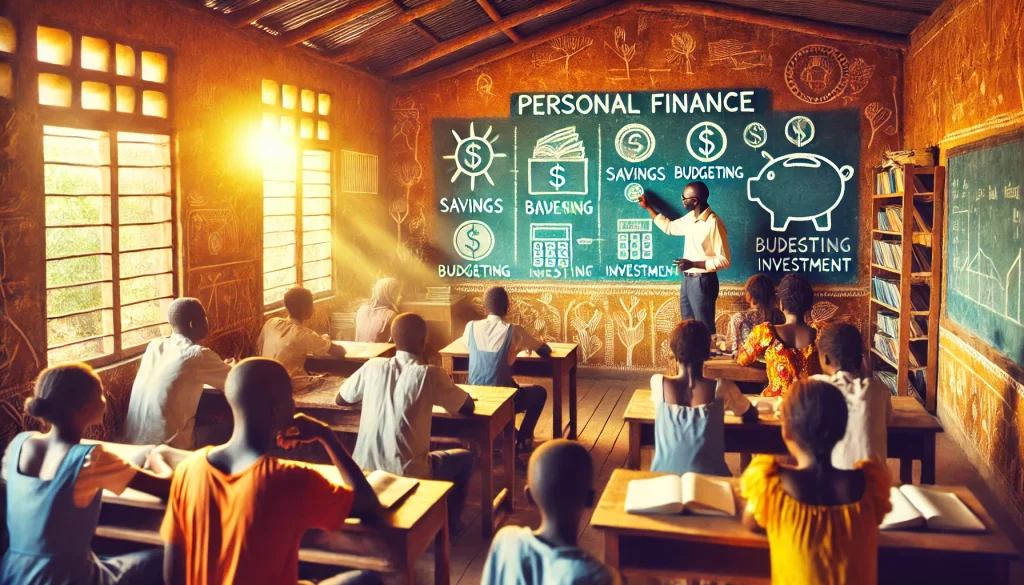In Africa, addressing socio-economic challenges is crucial for fostering progress, and one overlooked but vital component of this is personal finance education. Teaching financial literacy early can significantly impact young minds, equipping them with the skills needed to navigate economic complexities. Personal finance education is not just about managing money; it empowers youths with the knowledge to make informed financial decisions, paving the way for economic stability and growth across the continent.
Introducing financial literacy in schools across Africa can transform communities by cultivating responsible financial habits from a young age. As individuals become more adept at managing personal finances, there’s potential to reduce poverty and economic disparities. Highlighting the benefits and implementation strategies for personal finance education can spark conversations among educators and policymakers, ultimately promoting inclusive economic advancement for future generations.
The importance of financial education for future generations

Understanding personal finance helps young adults develop essential habits like budgeting, saving, and investing. These skills are crucial for achieving financial independence and security, which significantly affect one’s quality of life. Through personal finance education, students learn how to set financial goals and develop plans to achieve them, fostering a sense of responsibility and empowerment.
Moreover, financial education can help bridge economic gaps and promote equality by providing everyone, regardless of background, access to crucial financial knowledge. Studies suggest that individuals educated in finance from an early age are likelier to make sound financial decisions, contributing to a more equitable society. Thus, embedding such education within the school system is a vital step toward reducing economic inequalities.
By including financial literacy in school curricula, children get the chance to practice skills that will serve them well into adulthood. They learn the value of money and the importance of planning and saving, laying a strong foundation for a future where financial well-being is achievable for all.
Challenges in implementing financial education in schools
Despite its benefits, there are notable challenges in implementing a standardized financial education curriculum across African schools. One major issue is the lack of harmonized content, which leads to inconsistent knowledge levels among students. There’s also a shortage of qualified teachers equipped to deliver this critical subject, which hampers efforts to integrate finance lessons effectively.
Furthermore, barriers such as inadequate funding and resources make it difficult for schools in underprivileged regions to prioritize personal finance education. Economic conditions vary drastically across the continent, affecting the feasibility of incorporating such programs institutionally.
Addressing these challenges requires collaborative efforts from governments, NGOs, and educational bodies to standardize and support financial literacy curriculums. This standardization is essential for ensuring all students have access to comprehensive financial literacy education regardless of their socio-economic status, ultimately leading to a more informed and financially resilient population.
Strategies for incorporating financial education in schools
To effectively teach personal finance, educators can utilize engaging and practical methods that resonate with students. Interactive classes, educational games, and financial simulations can make the learning process both educational and enjoyable. These methods help students understand complex financial concepts through real-world applications, enhancing their comprehension and retention.
African countries like South Africa have successfully implemented financial literacy initiatives in their education systems. They provide excellent examples of how tailored educational programs and partnerships with financial experts can create impactful learning experiences for students. Sharing such successful strategies can serve as a model for other regions seeking to adopt similar programs.
Promoting financial literacy through dynamic educational methods not only attracts students’ interest but also prepares them for real-life financial decisions, ultimately contributing to their long-term success and societal progress.
The long-term impact: preparing future generations for success
Comprehensive financial knowledge prepares young individuals for various career and business opportunities. Understanding finance enables them to manage their resources effectively, making them more attractive to prospective employers and increasing their entrepreneurial potential. Moreover, financially literate individuals are likely to foster innovation and drive economic growth within their communities.
Additionally, emphasizing financial education helps curb personal debt and encourages the habit of saving, leading to improved financial stability. As these skills are passed on, future generations are better positioned to manage their finances prudently, contributing to a cycle of financial health and reducing the burden of debt.
The path to a financially sustainable future
For personal finance education to have a meaningful impact, it requires strong support from educational policies focused on financial literacy. Authorities must prioritize incorporating financial education into the curriculum and provide the necessary resources for effective teaching. Such initiatives are critical for ensuring students graduate with a firm understanding of personal finance.
By fostering an environment where financial literacy is a priority, we can empower young people to take control of their economic futures. Through continuous efforts and adaptation to new financial challenges, the vision of a financially knowledgeable populace becomes attainable. Future generations can thus contribute significantly to building sustainable economic frameworks across Africa.
Ultimately, the commitment to integrating personal finance education into schools represents an essential investment in Africa’s future. As individuals grow up with the needed financial acumen, they will be better equipped to tackle economic challenges, fostering a legacy of economic stability and success for years to come. Learn more about how tech-driven education solutions are transforming learning experiences across Africa.



